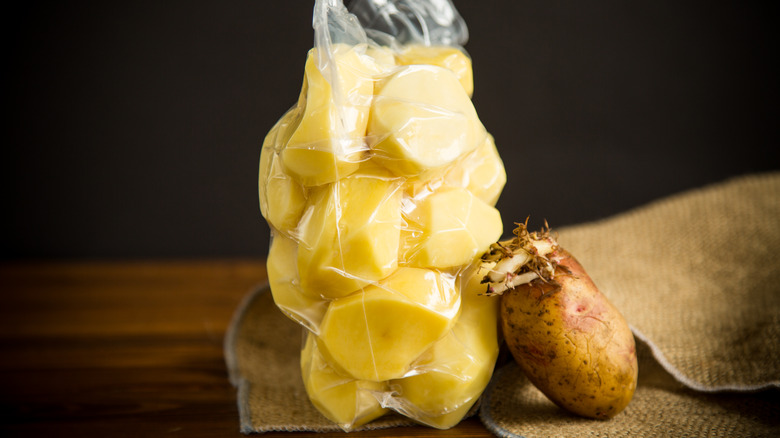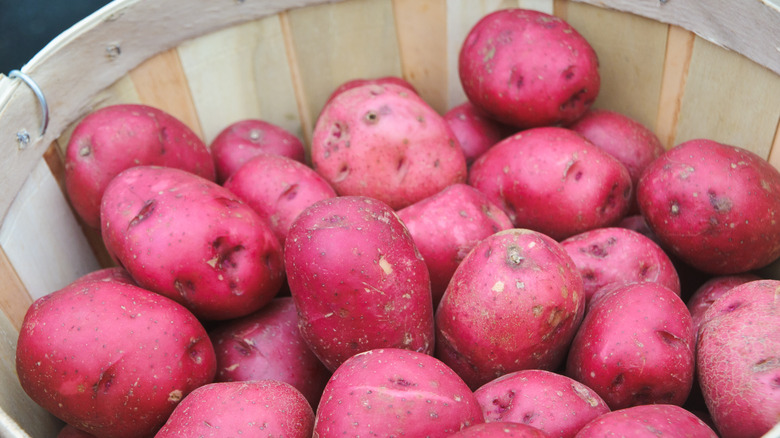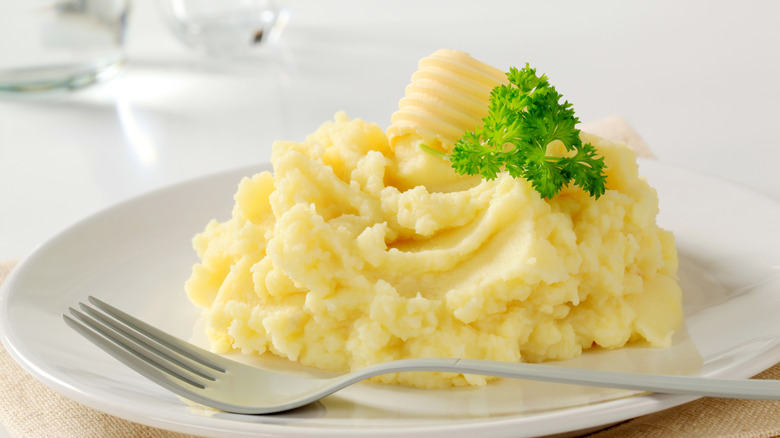If You're Freezing Potatoes For Later, Make Sure You Choose The Right Kind
Few foods are heartier or more versatile than the humble potato. Though there are all sorts of different varieties, they all have a pretty long shelf life. Potatoes tend to last for months when stored in a cool pantry — and if they've gone bad, you'll know; they'll turn soft and might develop black spots. For the most part, you should feel good about storing them in the kitchen pantry and just pulling them out when you need them.
But if you really want to keep potatoes for longer than months on end, or if you live somewhere so hot that a cool pantry isn't a possibility, fret not, potatoes can be frozen. Most types, it turns out, struggle with being frozen, and there's only so much you can do to mitigate the problem. But there are a few varieties that do better than others, and what you're looking for are potatoes with lower water and starch content.
Foods with more water don't freeze as well
When you freeze potatoes, generally what suffers isn't the flavor, it's the texture; they tend to become mushy and grainy when thawed. The reason for this is that raw potatoes contain a lot of water, the worst thing a food can contain if you're trying to freeze it. Think about ice cubes: When water freezes, it expands. Similarly, when food freezes, the water inside it expands at the same time as ice crystals form. These ice crystals rupture the food's cell walls, damaging its texture. Normally, this can be mitigated by freezing food faster, but only smaller crystals have a chance to form that way. This is why frozen food wasn't really viable until the creation of rapid freezing techniques. But when a food contains a lot of water, there's only so much you can do to get around the problem (which is why hard cheeses freeze well, but soft cheeses suffer).
If you're freezing potatoes, then, what you want is a potato variety lower in both water and starch; Yukon golds or red potatoes are going to freeze a lot better than russets, for example. They still might not turn out as great as fresh potatoes, but you're definitely going to get better results than with other varieties.
Some types of cooked potatoes fare better than raw ones
Funnily enough, when you cook your tubers into something like mashed potatoes, they actually freeze a lot better. The reason for this is that when you cook potatoes, they release a lot of their water content (especially if you're doing something like mashing them, which thoroughly breaks them down). In addition, the dairy fat in butter and sour cream provides additional prevention against unpleasant texture. The amount of these ingredients also matters, so you'll get better results freezing mashed potatoes if they have more butter and sour cream in them, so feel free to load those suckers up.
Freezing potatoes may limit their applications, but it's still a viable option as long as you pick the right potato (and freeze them the right way — as quickly as humanly possible). As long as you do that, you shouldn't have to worry about the viability of your tuber-based dishes.


